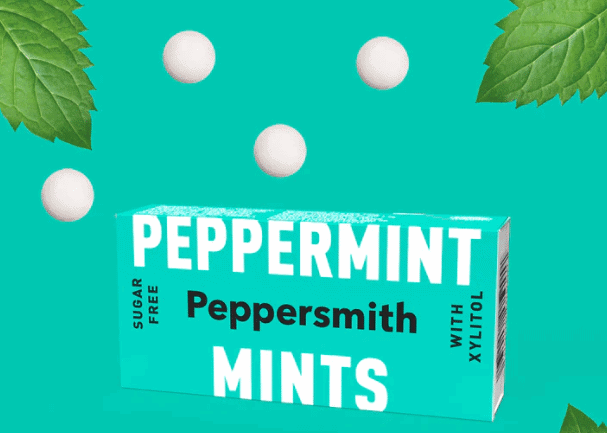Missing shoes (always just as you’re about to leave the house), the last-minute PE kit grab, and a lunchbox packed at lightning speed before the school run.
As a parent, I know exactly how frantic those mornings can be. And as a dental professional, I see the hidden cost when sugary snacks get thrown into lunchboxes as a last resort. That “healthy” cereal bar that actually hides more sugar than a chocolate bar fuels cavities, extractions, and kids riding the sugar rollercoaster — with energy peaks and drops carrying on all day.
The good news? With a few smart swaps — and the simple addition of bacteria-busting xylitol — you can protect your child’s smile and help them stay focused in class, without adding stress to your morning routine.
The Problem: Sugar, Teeth, and Tired Kids
Sugar might feel like a quick fix on chaotic mornings, but for children it packs a double punch. In the mouth, it feeds decay-causing bacteria — tooth decay is still the most common reason for hospital admissions among 5- to 9-year-olds in England. Every year, thousands of children need hospital extractions due to tooth decay — procedures that could have been prevented with simple daily changes.
In the classroom, those same snacks spike blood sugar, leaving children bouncing between energy highs and concentration dips.
It’s a cycle I see all too often — clinically and personally. Preventable cavities, kids missing school for treatment — and as a parent myself, I know how easily those “just one treat” moments pile up.
Simple Changes for Healthier Smiles
Protecting teeth doesn’t mean overhauling your whole routine. Small, realistic tweaks can make a big difference:
Best sugar-free lunchbox snacks for teeth
Cake bars, cereal bars, flapjacks, and even “healthy-looking” children’s yoghurts are often packed with sugar. Try packing chopped fruit, veggie sticks with houmous, or crackers with a cheese dip instead. Stick to plain yoghurt sweetened with fruit where you can.
Get kids involved –
A bonus hack for busy families: invest in a simple fruit or vegetable slicer that children can use safely. It saves parents time, makes packing lunches fun, and teaches good habits for healthy eating practices.
Water over juice –
It hydrates better and skips the hidden sugars and acids that cling to teeth.
Consistent brushing matters –
Children should brush their teeth twice daily with a fluoride toothpaste for 2 minutes — once before bed and at least once more during the day, ideally in the morning before breakfast.
Toothpaste guide by age:
- Age under 3: Use a smear of fluoride toothpaste (at least 1,000 ppm fluoride).
- Age 3–6: Use a pea-sized amount of fluoride toothpaste (more than 1,000 ppm fluoride).
- Age 7+: Use a family fluoride toothpaste (1,350–1,500 ppm fluoride).
Remember: After brushing, children should spit out excess toothpaste but not rinse with water — this helps fluoride stay on the teeth longer for extra protection.
Bonus tip for little ones
To make brushing less of a battle, try playing a favourite two-minute song, using a sticker chart, or downloading a brushing app.
For more guidance on children’s toothbrushing, see the NHS advice on children’s teeth🔗
Pop a xylitol pastille between brushes
Alongside healthy foods, it’s smart to add xylitol pastilles or mints to your child’s lunchbox. They taste like a sweet treat — but instead of being loaded with sugar, they’re sweetened with xylitol — a natural, tooth-friendly alternative that comes from plants. This makes them a tasty option for children with a sweet tooth, and the benefits don’t stop there.
This bacteria-busting sweetener reduces cavity-causing bacteria by starving them of energy, stopping them from sticking to teeth, and lowering the amount of acid they produce. On top of that, the act of sucking on the pastilles stimulates saliva flow, which helps keep the mouth’s pH levels better balanced — all of which makes teeth more resistant to cavities.
Note: Pastilles and mints are best for school-age children who can safely suck sweets — they’re not suitable for toddlers.
The good news is, these benefits are easy to build into daily life with tooth-friendly options like:
- For younger children: Peppersmith’s Strawberry Pastilles🔗
or Sicilian Lemon Mints🔗 both from Peppersmith.co.uk
.
- For older kids and teens: Peppersmith’s English Peppermint Mints🔗are a smarter option than sugary mints. Also, from Peppersmith.co.uk
What We Can Learn from Scandinavia
In Scandinavian countries, governments actively supply xylitol pastilles to nursery and primary school children after meals. Why? Because the evidence is clear: routine xylitol use helps protect young teeth even when brushing isn’t possible. These school programmes report significantly fewer cavities compared to countries where xylitol isn’t widely used — proof that small, daily changes in the early years deliver big health benefits.
Expert View
“As both a dental professional and a parent, I know how tricky it can be to balance convenience with health. Introducing xylitol in between brushes is an excellent way to help protect teeth against sugars in the diet. For younger children, flavoured pastilles (Peppersmith.co.uk) can even serve as a sweet-treat replacement. Alongside simple changes — like choosing water instead of juice, or sticking to twice-daily brushing with fluoride toothpaste — these habits give children stronger protection against cavities and help set the foundation for lifelong oral health.”
— Colette Lawler, Dental Hygienist/Therapist with over 20 years’ experience & mum of three.
The Takeaway
The school rush will always be a little chaotic (if only finding missing shoes was as easy as finding hidden sugar in snacks!). But keeping children’s teeth healthy doesn’t have to add to the stress. With small changes — like swapping out sugar-dense snacks for tooth-friendly options, adding xylitol pastilles (Peppersmith.co.uk), sending water instead of juice, and sticking to twice-daily brushing with fluoride toothpaste — parents can protect their child’s smile, support healthy eating habits, and reduce the risk of preventable cavities.
Written by Colette Lawler — Dental Hygienist/Therapist and Freelance Medical Writer at ByteWise Health Info Ltd, specialising in oral health, oral cancer, and digital health.












